 As promised, here is a repost of my pre-Remote Wanderings reviews of Ridley Scott's Crusades epic Kingdom of Heaven. The first is of the theatrical cut from June 2005, the second of the Director's Cut from June 2006. It's been interesting to look back at these reviews and see how my style has changed (and hopefully) improved in only a year of intermittent work. Consequently, please forgive any clumsiness or repetition. Please click the 'Read More' link below for the full post.
As promised, here is a repost of my pre-Remote Wanderings reviews of Ridley Scott's Crusades epic Kingdom of Heaven. The first is of the theatrical cut from June 2005, the second of the Director's Cut from June 2006. It's been interesting to look back at these reviews and see how my style has changed (and hopefully) improved in only a year of intermittent work. Consequently, please forgive any clumsiness or repetition. Please click the 'Read More' link below for the full post.THEATRICAL CUT - JUNE 2005
Ridley Scott is a damn fine director, there’s no two ways about it. Despite his critical and commercial slump between Thelma and Louise in 1990 and Gladiator in 2000, the man’s largely been pumping out interesting, well-made movies, and unlike another major director who’s as comfortable creating small dramas as he is epics—Steven Spielberg—Scott manages to disappear into every film he does. Whether it’s Jurassic Park or Catch Me If You Can, Spielberg’s films generally feel like Spielberg films. It’s not a bad thing, it’s just that you can feel his presence as you watch, whereas Scott is a chameleon: it’s hard to believe that the same guy made Gladiator and Matchstick Men in the space of three years. He alters his directorial style drastically with every movie he makes so that any signature methodology refuses to form, but he’s always a terrific all-rounder despite this; his movies are consistently well-acted, well-shot, and well-written.
So with this in mind, Kingdom of Heaven becomes quite the film to ponder. After the solid Gladiator (not Best Picture-worthy, but an excellent film nonetheless), the prospect of another historical epic from Scott was enticing, especially after the underwhelming Alexander and the almost amateurish Troy. Scott’s record gave an all-too-rare guarantee of at least reasonable quality, and he was tackling fairly fresh material, as the Crusades have never been substantially addressed on film before, certainly not enough to yield a definitive motion picture on the subject. So if Scott could apply the balanced formula of Gladiator to this particular area, then we could be confident in a solid historical epic, right?
It’s tragic to see a director as consistent as Scott, and particularly one who is going through a period of sustained creative excellence, perform so underwhelmingly. Technically, Kingdom of Heaven is superb: the cinematography is gorgeous, the visual effects successful but unobtrusive, the score quite serviceable, and the historical detail rich. Likewise, the acting is nothing to sneer at - Liam Neeson is terrific as always, though he appears far too briefly; Jeremy Irons makes a welcome return to ‘big’ cinema with a typically strong performance; and even Orlando Bloom is perfectly adequate in the lead as Balian. He may not exude the intense charisma of Russell Crowe in Gladiator, but his lack of experience as a leading man is certainly not distracting. While his performance is nothing spectacular, it’s well suited to the film and doesn’t scupper it as many expected it to.
No, the problem with Kingdom of Heaven is whichever studio executive forced Scott to cut around 80 minutes of footage for theatrical release, thus reducing a nearly 4-hour epic to 2 hours 20. Entire subplots were excised. Scott hasn’t spoken too extensively about these cuts, but there are reports that while he was certainly not happy about them, he was relieved that he at least got to perform them himself. Of course, until the full cut is seen, the brutal editing cannot be presumed to be the reason for the film’s failure. However, it makes a great deal of sense, because the film’s main problems are insufficient narrative detail and, most crucially, characterisation. Whereas Gladiator was very efficient in its development of character, Kingdom was clearly adopting a subtler, more leisurely approach, more akin to epics of old like Lawrence of Arabia. There may well have been entire scenes that did not further the plot, but gradually revealed facets of the characters that would make them resonate as their roles in the plot came to prominence. With longer films, particularly those over three hours, the feeling that you’ve been engrossed in this story for a substantial length of time is utilised to facilitate characterisation. This doesn’t mean that directors make their films lengthy so that audiences will relate to the characters due to sheer overexposure - such an approach would naturally fail anyway. Rather, if the pacing is well-constructed (see The Lord of the Rings and Titanic for how well a long film can be paced), then the audience will remain engrossed but still be aware that they have spent a substantial amount of time involved in the story and the characters. This approach allows for a more subtle, accumulative approach to characterisation, and is especially appropriate when the events of the story span years (Gladiator, for example, takes place over a comparatively short length of time). Kingdom does cover a quite substantial time period, and I’m confident that this more gradual (not to be confused with ‘slow’) approach is what Scott was employing, so that the ruthless editing of nearly an hour and a half of footage rendered the approach moot and virtually destroyed the film’s ability to develop character and narrative appropriately.
This compromise is painfully evident throughout the film. Major events happen far too quickly without enough build-up. Relationships are touched upon as having significance even though there have been far too few scenes devoted to them. Supporting characters can be dispatched in a pivotal fashion, but the film leaves us questioning why their death is supposed to matter. There are a huge number of instances of these deficiencies, and combined, they wreak a terrible effect on both the climax and the audience’s overall investment. The climactic siege of Jerusalem is fairly dull in terms of being an affecting experience for the characters, because it happens so quickly in relation to their positions within the film. The leader of the Muslims, Saladin, is painfully underdeveloped, and when he confronts Bloom’s character, the scene oozes significance even though the audience is left struggling to remember when it was ever earned.
As for audience investment, the fact that Bloom’s character largely remains a cypher is what cripples the film. This is not Bloom’s fault, but rather the film’s (or perhaps, the theatrical cut’s) failure to provide enough instances for the audience to get to know him, understand him, and empathise with him. Balian is our window into the immense and expansive conflict of the Crusades, and if we cannot appreciate his motivations on anything but a superficial level, then that conflict will be rendered less interesting. The fact that the supporting characters cannot compensate for this due to their own lack of development only makes matters worse. But again, what’s most telling is that certain key incidents involving these characters carry a significance that must have been earned in other scenes; the focus is too strong, and the resonance they are supposed to exude too apparent in a surface context.
An example is Brendan Gleeson’s character of a political manipulator who assists Marton Csokas’s newly-crowned king in his ambitions for war. When Gleeson exits the film, he has literally appeared for three or four short scenes, with barely any chance to make an impression on the storyline or on audiences. Yet when he does depart, the event is foregrounded in its brutality, and is clearly meant to impact Csokas’s character in that one of his key allies has now been lost. Yet I was sitting there uncertain as to why we were supposed to care. When were we ever given the impression that Gleeson’s character remotely mattered? His final scene implicitly states that he does, yet there has been no opportunity for this to be justified. Again, the scene screams of lost footage, and like many others in the film, fails to make the appropriate impact due to a lack of narrative investment leading up to it. Not only is this the problem with individual scenes, but with the film as a whole.
Within the theatrical cut of Kingdom of Heaven, there is an excellent film screaming to be released from its mediocre confines. No film has demanded an extended cut this powerfully in many years, and although such a version may ultimately reveal that the film’s problems are endemic regardless of length, it’s so hard to believe that such a competent and experienced filmmaker as Scott would film such a poorly developed script. Of course, even the best director can make a dud film, but more often than not, this is due to a failure to live up to its ambition, even with the resources that were available to it. Scott’s ambition for Kingdom of Heaven seems to have been chopped off at the knees, and it’s interesting to note how very few reviews for it are strongly positive or negative - instead, they are courteously ambivalent, perhaps tacitly realising that there is potential in this film that has not been seen.
If what we’ve seen of Kingdom of Heaven was supported by a good hour of character development and narrative enunciation, then the currently available material would surely resonate more strongly. Even before I knew for sure that a substantial amount of footage had been cut, I reflected on the film (even as the credits rolled) and felt that great swathes of the film must be missing - I, and those I saw it with, had the common sentiment that “that can’t be all there was”. In themselves, the theatrical cut’s scenes are solid - they just lack the context to be successful as part of a whole. There are rumblings that Scott’s full cut will be released on DVD next year, and I’d wager that a profoundly different, and much, much better film will reveal itself in that form. If it is so radically different, and subsequently makes the broader impact that such a version should, Kingdom of Heaven could stand as possessing the most important alternate cut of a film in many years, perhaps since Scott’s own Blade Runner in 1992. There could be a classic in there somewhere... just don’t bother seeing the film as it’s available now. The real version awaits, and so the theatrical one only merits attention now on the off-chance that the extended cut ends up being a revelatory experience - let’s hope.
DIRECTOR'S CUT - JUNE 2006
A recent triumph for cinema fans is the DVD liberation of Ridley Scott’s director’s cut of Kingdom of Heaven after its butchering at the cinema in May of last year, wherein Fox ordered Scott to remove 40 minutes of footage in order to fit in more screenings per day, leaving a visually spectacular but narratively hollow and disjointed failure behind. In my review of the theatrical cut, I had suspicions that such cuts had occurred; it was so palpably clear that major things were missing. When I discovered that this intuition was correct, I began holding out hope that the real version of the film would one day be seen.
And now, only one year later, the director’s cut is here – clearly Fox’s home video department has different bosses to its film unit. Thanks to the glory of Amazon, I’ve just taken it in.
The various reviews of this DVD, and of the new cut when it had a brief theatrical run last December, are correct: this is a substantially improved film. I haven’t seen the theatrical cut since last May, and thus couldn’t tell for sure whether some scenes were new, but the shift in pacing is abundantly clear. This is a full, vital movie at last, virtually a separate experience. While I can’t quite hail it as a classic as others have, this is of a very different tenor to most movies today. They really don’t make films like this any more – it’s a throwback to the luxurious timescales of David Lean epics like Lawrence of Arabia and Doctor Zhivago. In comparison, Scott’s Gladiator is a small, insular yarn, and in a lot of ways, probably felt like preparation for this movie. While lacking that film’s streamlined narrative and dynamic, visceral characters, Kingdom of Heaven is still working on another level to Scott’s last period piece. The plotting and characterisation are much more subtle, more akin to Lean and Kurosawa than the bombastic Gladiator (a film I love though, don’t get me wrong). Plus, the themes and political subtext are a great deal more relevant to today, continuing Scott’s willingness (along with Black Hawk Down) to shed his ill-deserved reputation as a predominantly visual stylist and engage with contemporary issues.
These facets comprise Kingdom of Heaven’s true nature, which is revealed both by the involving pacing that the new footage provides and by the contents of that footage. An entire subplot was gutted from the film involving Sibylla’s (Eva Green) young son, who ascends the throne following his uncle’s death – he wasn’t even mentioned in the theatrical cut. The storyline has tendrils in every facet of the narrative; ‘the boy’ is mentioned in so many key scenes that the scale of the cuts becomes abundantly clear in the second half of the film. The subplot itself is very interesting, deepening the political machinations and transforming Sibylla from a glorified love interest into a fully-fledged character. It also gives her relationship with Orlando Bloom’s Balian a nuance and dignity that was largely absent in the other cut. Scott explains in his introduction that test screening audiences felt the story to be too tangential for the second half of the film, that it ruined the pacing – the ironic consequences of those criticisms is readily apparent now, as is their lack of validity. It slips into the film superbly, integral rather than superfluous – cutting it now seems unthinkable.
The other additions are less certain, although the film’s opening isn’t nearly as abrupt and features some fairly significant revelations. The priest Balian kills at the start of the film is actually his brother, and the local lord is the brother of Liam Neeson’s character, deepening his connections to the village he finds his son in. Plus, we discover that Balian is an enginer who has already fought in a war, which rationalises his miraculous practical strategies during the siege of Jerusalem. Balian benefits quite a bit overall, his character’s journey being more discernible. However, the new version sadly doesn’t reveal new depths to Bloom’s performance. While he was very capable in the theatrical cut and I have faith in his potential as an actor, he isn’t able to convey Balian’s transformation over the epic course of this film while constrained by the character’s stoicism. Although the script’s characterisation of him is allowed to run free in this cut, Bloom doesn’t quite match it. But as before, he’s more than adequate to the task.
As mentioned above, Eva Green’s Sibylla benefits the most. I can understand her frustration last year, as most of her best scenes hit the cutting room floor with her character’s son. And while the other supporting performances are no more sterling than they were in the theatrical cut, their characters no longer seem superfluous, afforded dramatic entries and exits that weren’t earned. When David Thewlis, Brendan Gleeson, and Jeremy Irons’s characters depart the film (and no, they don’t all die, so my allusiveness isn’t completely hollow), it’s a natural culmination of what has come before, not an inexplicable emphasis at odds with the character’s screen time.
As I expected and hoped, the new cut really does fix all the problems I had with Kingdom of Heaven, although it still remains a little emotionally distant. The subtle screenplay does have its pitfalls in providing less for the audience to intuitively latch on to, but it’s an acceptable price to pay for a film that so respects its audience’s intelligence. Here’s hoping that audiences rediscover this film, so it can be afforded its proper place in Ridley Scott’s career and this decade of cinema.
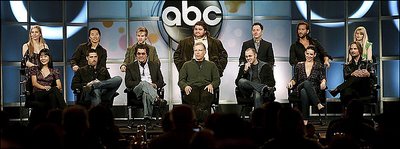

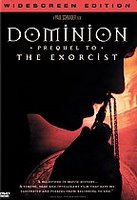 Schrader wasn’t phoning the film in though, as became clear when Morgan Creek saw his initial cut and were horrified by the lack of gore and traditional ‘scares’. Schrader had delivered a thoughtful contemplation of good and evil in the light of Christian ideologies, and production head James G. Robinson believed that his summer slam-dunk was down the tubes. Schrader was promptly fired from the film and Renny Harlin, he of Cutthroat Island and Deep Blue Sea, was appointed as the project’s third director to reshoot certain scenes. Actors were recast (except for Stellan Skarsgard as Merrin), the script rewritten, and ultimately, the entire film reshot despite an initial mandate of only conforming Schrader’s work to more mainstream horror film conventions. Exorcist: The Beginning was released to mediocre box office in August 2004.
Schrader wasn’t phoning the film in though, as became clear when Morgan Creek saw his initial cut and were horrified by the lack of gore and traditional ‘scares’. Schrader had delivered a thoughtful contemplation of good and evil in the light of Christian ideologies, and production head James G. Robinson believed that his summer slam-dunk was down the tubes. Schrader was promptly fired from the film and Renny Harlin, he of Cutthroat Island and Deep Blue Sea, was appointed as the project’s third director to reshoot certain scenes. Actors were recast (except for Stellan Skarsgard as Merrin), the script rewritten, and ultimately, the entire film reshot despite an initial mandate of only conforming Schrader’s work to more mainstream horror film conventions. Exorcist: The Beginning was released to mediocre box office in August 2004. The subplots, characterisations, clarity, and texture that the director’s cut of this film unearth restore it to fighting fitness. I wouldn’t go as far to call it a modern classic as some vindicated reviewers have – it’s a little too stately and dry for that – but Kingdom of Heaven is still moviemaking that just doesn’t happen anymore, a subtle epic that’s significantly more mature and thoughtful than Scott’s admittedly great but largely yarn-spinning Gladiator. Seek out this DVD, even if you found the version you saw in the cinema turgid and uninvolving. It fixes that.
The subplots, characterisations, clarity, and texture that the director’s cut of this film unearth restore it to fighting fitness. I wouldn’t go as far to call it a modern classic as some vindicated reviewers have – it’s a little too stately and dry for that – but Kingdom of Heaven is still moviemaking that just doesn’t happen anymore, a subtle epic that’s significantly more mature and thoughtful than Scott’s admittedly great but largely yarn-spinning Gladiator. Seek out this DVD, even if you found the version you saw in the cinema turgid and uninvolving. It fixes that.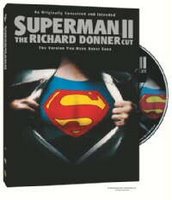 I’ve yet to see the new version, and after such a long campaign by fans there is a surprising amount of dissent as to which version is better, but the consensus is that the tone is decidedly different. Gone is Lester’s irreverent, almost jokey take on the material and returned is Donner’s respect for Superman’s mythological resonance. To cap it off, editor Michael Thau (who has achieved something immense with this version after near-archaeological investigations) restores an entire lost Marlon Brando performance. Brando’s hugely paid work on the project extended to the second with several scenes between he and Reeve, but the producers jettisoned the footage for the release to recoup some of the costs of reshooting the film with Lester.
I’ve yet to see the new version, and after such a long campaign by fans there is a surprising amount of dissent as to which version is better, but the consensus is that the tone is decidedly different. Gone is Lester’s irreverent, almost jokey take on the material and returned is Donner’s respect for Superman’s mythological resonance. To cap it off, editor Michael Thau (who has achieved something immense with this version after near-archaeological investigations) restores an entire lost Marlon Brando performance. Brando’s hugely paid work on the project extended to the second with several scenes between he and Reeve, but the producers jettisoned the footage for the release to recoup some of the costs of reshooting the film with Lester. 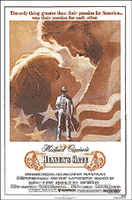 That’s a hell of a lot of preconceptions for a film to be saddled with, but Heaven’s Gate has been enjoying a critical reappraisal since being salvaged in the 1980s by cable network Z Channel. Founder Jerry Harvey elected to broadcast Cimino’s early 219-minute cut as opposed to the 149-minute theatrical release, a move that led to his network’s reputation as a saviour of shunned movies. The endeavour also originated the ‘director’s cut’ term and proved them to be marketable. This version has been the only one released on VHS and DVD, so this doesn’t exactly qualify as a lost cut, but it has taken many years for Heaven’s Gate to gain respect on a wide scale – some still sneer at its excesses, and it has an underdog status that led it to being shown in a visually remastered form at several film festivals in 2004 with an accompanying documentary about the whole fiasco.
That’s a hell of a lot of preconceptions for a film to be saddled with, but Heaven’s Gate has been enjoying a critical reappraisal since being salvaged in the 1980s by cable network Z Channel. Founder Jerry Harvey elected to broadcast Cimino’s early 219-minute cut as opposed to the 149-minute theatrical release, a move that led to his network’s reputation as a saviour of shunned movies. The endeavour also originated the ‘director’s cut’ term and proved them to be marketable. This version has been the only one released on VHS and DVD, so this doesn’t exactly qualify as a lost cut, but it has taken many years for Heaven’s Gate to gain respect on a wide scale – some still sneer at its excesses, and it has an underdog status that led it to being shown in a visually remastered form at several film festivals in 2004 with an accompanying documentary about the whole fiasco.  Seeking to capitalise on the huge success of an unearthed workprint in limited release (see Paul Sammon’s superb book Future Noir: The Making of Blade Runner for the complete story), Warner Bros. rushed a more polished version into theatres. Ridley Scott had time to fix his most important objections to the theatrical cut – the addition of a film-noir voiceover and a happy ending for Deckard and Rachel – but he wasn’t even able to supervise these changes, let alone remedy the many other mistakes perpetrated on his film in 1982. Thankfully, he was able to create a Final Cut for DVD release in 2000, but legal disputes held up its release for years. Only last year was a special edition DVD release of Blade Runner announced, after speculation that the entire venture was now doomed. Warner Bros. reissued the bare-bones Director’s Cut disc with a remastered transfer last October, but will screen the Final Cut in cinemas later this year and, soon after, release a jam-packed edition featuring multiple cuts of the film (the theatrical cut and its voiceover still holds interest as a curio) and myriad bonus features. The new DVD comes from longtime Scott DVD producer Charles de Lauzirika, who has created benchmark documentaries and hunted for rare extras for the Alien films, Gladiator, Kingdom of Heaven, and others. He claims that those DVDs were just practice for Blade Runner, which will be the “master thesis”. Colour me excited.
Seeking to capitalise on the huge success of an unearthed workprint in limited release (see Paul Sammon’s superb book Future Noir: The Making of Blade Runner for the complete story), Warner Bros. rushed a more polished version into theatres. Ridley Scott had time to fix his most important objections to the theatrical cut – the addition of a film-noir voiceover and a happy ending for Deckard and Rachel – but he wasn’t even able to supervise these changes, let alone remedy the many other mistakes perpetrated on his film in 1982. Thankfully, he was able to create a Final Cut for DVD release in 2000, but legal disputes held up its release for years. Only last year was a special edition DVD release of Blade Runner announced, after speculation that the entire venture was now doomed. Warner Bros. reissued the bare-bones Director’s Cut disc with a remastered transfer last October, but will screen the Final Cut in cinemas later this year and, soon after, release a jam-packed edition featuring multiple cuts of the film (the theatrical cut and its voiceover still holds interest as a curio) and myriad bonus features. The new DVD comes from longtime Scott DVD producer Charles de Lauzirika, who has created benchmark documentaries and hunted for rare extras for the Alien films, Gladiator, Kingdom of Heaven, and others. He claims that those DVDs were just practice for Blade Runner, which will be the “master thesis”. Colour me excited.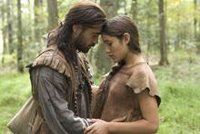 I’m bending the rules here, as this isn’t really a lost cut. Terrence Malick had full control of the cut he released to theatres of his sublime take on the Pocahontas story, but his producer Sarah Green has promised that a 3 hour-plus version is waiting in the wings for a DVD release that is even more Malickian than the meditative film we have already seen. The New World has been fluid in its incarnations from the start, with Malick releasing a 150-minute cut in limited release, withdrawing it, and issuing a 135-minute version for wide release. Those lucky enough to see the original version say that it was surprisingly different, altering the motivations of principal characters. Whether this version will ever be seen again, or whether it needs to be if the 3 hour cut comes out, is unknown at this point, but a different perspective on this tantalising film, which is developing quite a cult following after its anaemic release a year ago, will be most welcome. And if it succeeds, perhaps it will inspire Malick to revisit The Thin Red Line after all.
I’m bending the rules here, as this isn’t really a lost cut. Terrence Malick had full control of the cut he released to theatres of his sublime take on the Pocahontas story, but his producer Sarah Green has promised that a 3 hour-plus version is waiting in the wings for a DVD release that is even more Malickian than the meditative film we have already seen. The New World has been fluid in its incarnations from the start, with Malick releasing a 150-minute cut in limited release, withdrawing it, and issuing a 135-minute version for wide release. Those lucky enough to see the original version say that it was surprisingly different, altering the motivations of principal characters. Whether this version will ever be seen again, or whether it needs to be if the 3 hour cut comes out, is unknown at this point, but a different perspective on this tantalising film, which is developing quite a cult following after its anaemic release a year ago, will be most welcome. And if it succeeds, perhaps it will inspire Malick to revisit The Thin Red Line after all. 



